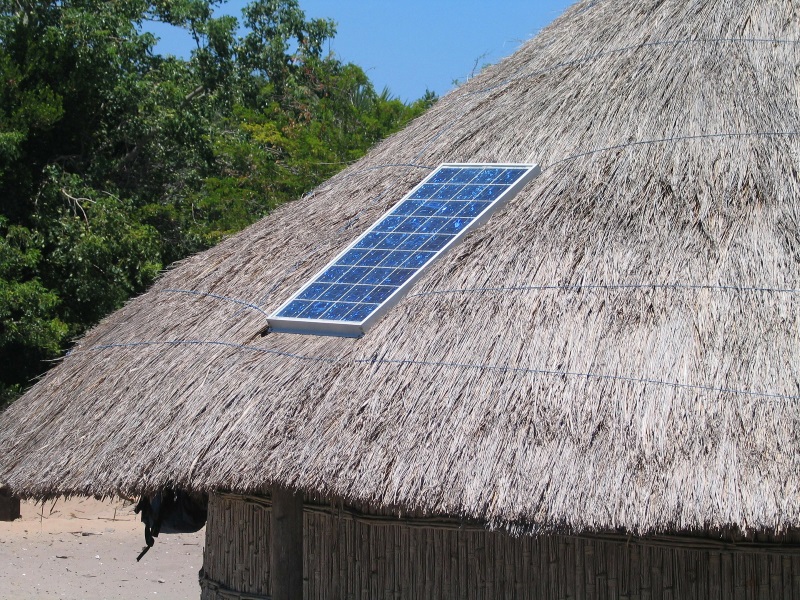
India has set an ambitious target of generating 100,000MW of solar energy by 2022 but does not have the technology to process sand into silicon, forcing its import in huge quantities, a top scientist said.
“As silicon is not produced in the country, we are totally import-dependent for it. Though we have plenty of sand as raw material, we don’t have the technology to process it into silicon wafers for solar cells or panels,” former Atomic Energy Commission chairman Srikumar Banerjee told IANS in an interview at the 103rd Indian Science Congress here, about 140km from Bengaluru.
Asserting that solar power would reduce carbon footprint in the long-term, Banerjee said energy generated from cells or panels was, however, 20-25 percent of the installed capacity as against 80 percent from a nuclear plant.
“As setting up a solar plant is highly capital intensive owing to import of silicon for panels or photovoltaic cells, its power can only complement nuclear or other forms of energy, including renewable and conventional,” Banerjee said on the occasion.
Though India is a tropical country above the equator, with plenty of sunshine, especially in western, central and southern regions for at least 10 months, harnessing its energy and distributing it with minimum loss at source or in transmission is a challenge for its stakeholders in the absence of a ecosystem yet.
“Unlike nuclear, which is a concentrated form of energy, solar is a distributed form, enabling us to have a mix of different sources. Both complement as they emit very low carbon footprint,” Banerjee said after delivering a special address on ‘Atomic Energy’ in a plenary session in the University of Mysore campus.
“We can have any installed capacity but what determines its utility and value is the quantum of energy produced in units per hour. A 1,000mw solar-based plant will not produce more than one-third of what a nuclear or thermal-based plant does per hour,” Banerjee pointed out.
Ironically, for various reasons, every energy form has issues, including environmental, economic, social and political, which delay execution, leading to cost escalation and shortage in view of the growing demand for power across the country.
“Our per capita electricity consumption is about 800 kilowatt per hour, with 25 percent of the population still having no access to power. In contrast, the world’s per capita consumption of power is 2,600 kw per hour. We have to generate four times the present output to meet the energy needs of our population, which will be about 1.4 billion in 20 years (2035),” Banerjee noted.
As domestic manufacturing of solar cells and panels was limited, the country is dependent on imports from China and other countries, including Germany.
“Even if we invest a lot to produce energy from renewable solar and nuclear sources, our dependence on fossil fuels like coal and natural gas will continue though we can reduce proportionately to check carbon emission from thermal power units,” he added.
In a related development, the government on December 30 hiked the budget for tapping solar energy through rooftop installations across the country to a whopping Rs. 5,000 crores from Rs. 600 crores earlier.
The increased budgetary support will enable utility providers to source power generated from rooftops solar systems through a grid over the next five years under the National Solar Mission.
An estimated 4,200 MW of solar rooftop systems are expected to be installed over the next five years on residential, government, social and institutions sectors such as hospitals and educational buildings.
[“source-gadgets.ndtv”]





